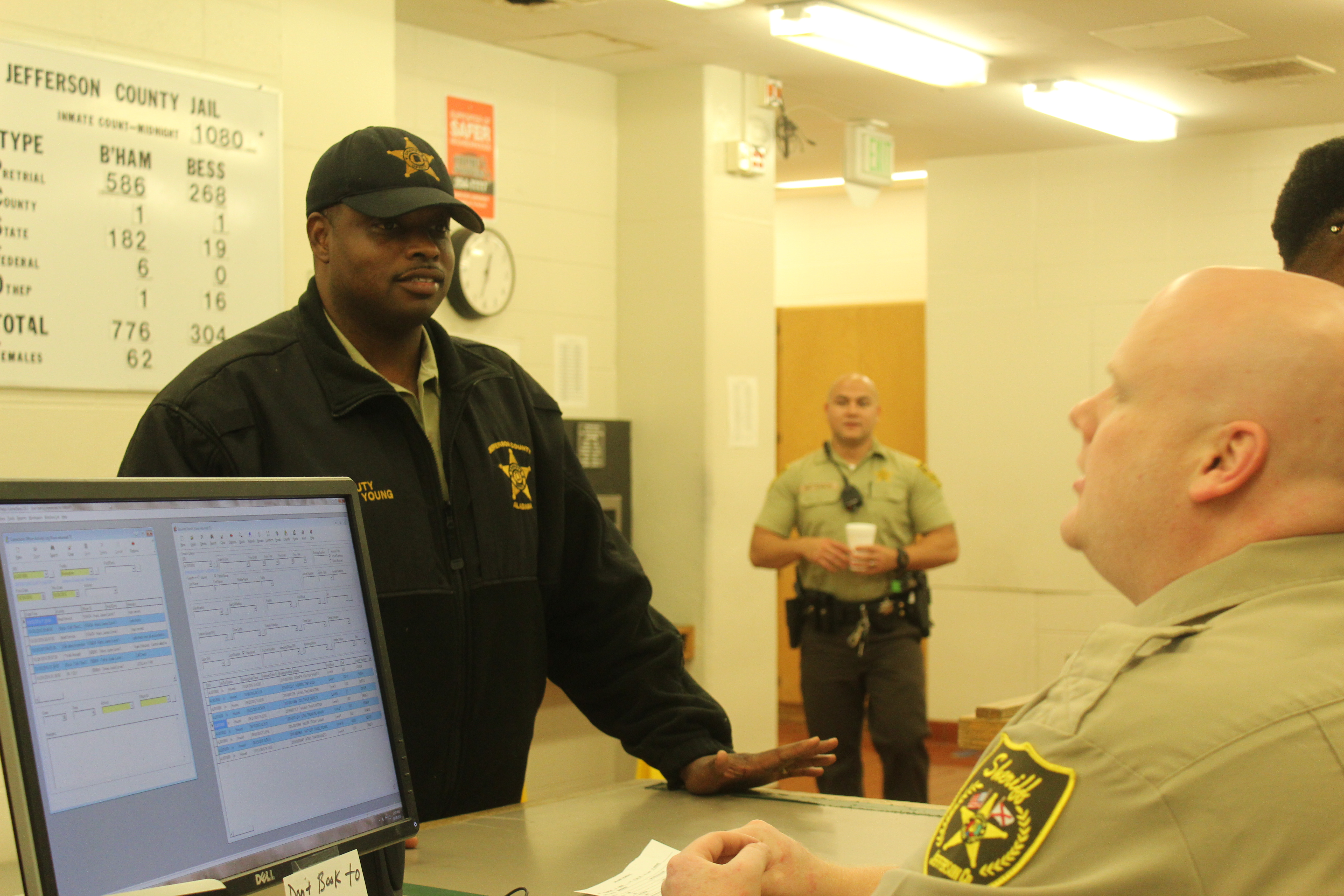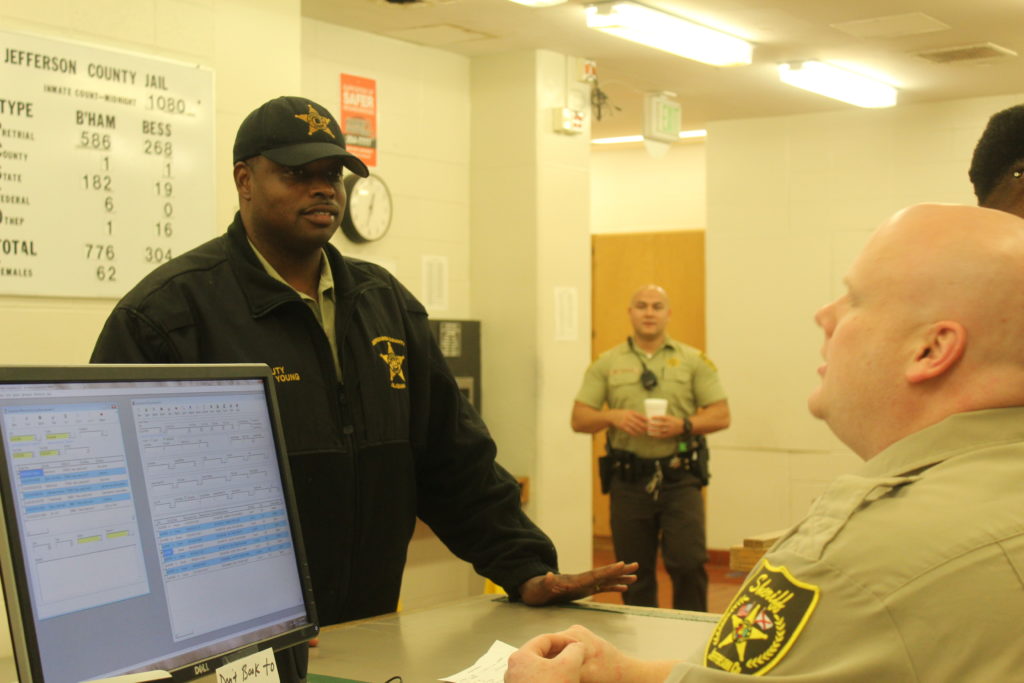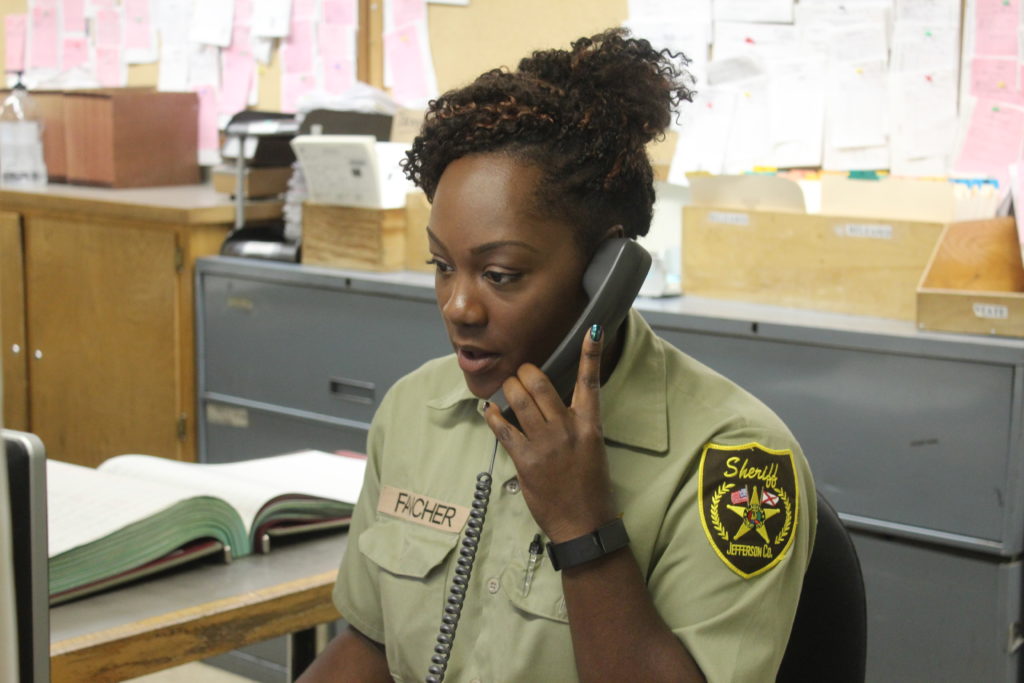
By Ariel Worthy
The Birmingham Times

Jefferson County Sheriff Mike Hale wants his office to mirror the community it serves.
The new class of sheriff’s deputies reflects that mission. Out of 39 new officers, 46 percent are black and 54 percent are women, according to the sheriff.
“The culture of this office is to simply keep neighborhoods safe. And we do that by having deputy sheriffs commit to that vision,” he said. “When your office is the community, if something outlandish or racist happens, it’s going to be shot down in the organization. It’s short-lived and it’s not going to be the culture of this office.”
Currently 50 percent of deputy chiefs are black. Fifty percent of the captains are black, and 20 percent are women. The total personnel are 36 percent black and 30 percent female. Creating a more diverse agency didn’t happen overnight, Hale said.
“About 10 years ago we started to hit the numbers that better reflect the county,” he said. “It’s only gotten better since then.”
Hale has not only diversified the force but also avoided some of the ugly incidents seen in some areas of the country between the community and law enforcement.
Hale’s son, Brian, a Hoover police officer, said the philosophy for law enforcement in the area is simple: work with citizens, not against them.
“It’s not an ‘us versus them’ mentality,” Brian said. “If it was, it would create environments like what we’re seeing across the country; not just police, but public servants in general need to reflect the community. We live here and work here, but so do the people we serve.”

Why it’s important
Given Birmingham’s past history of segregation Mike Hale said the sheriff’s department must remain diversified. His uncle, Mel Bailey was Jefferson County Sheriff during the Civil Rights Movement, where he was considered more moderate than then public safety commissioner Eugene “Bull” Connor.
Sheriff Hale applauded area civil rights leaders and law enforcement for working together to avoid incidents seen in Baton Rouge, Baltimore and Ferguson.
“[The current environment was] set in place and began in 1963,” Sheriff Hale said. “There was [a] conduit of communication that was laid in 1963 that, honest to goodness, we benefit from right now.”
Diversity also means the addition of women on the force, said the sheriff.
“They are stronger and smarter; they are everything officers in the 1960s thought they weren’t,” Sheriff Hale said.
Having female deputies in all areas of the operation is important, officials say.
“We’re especially fortunate to have women down here in the jail,” said Capt. David Agee, of the corrections division. “Having someone they’re more comfortable talking with is important. You’re in jail at the lowest part of your life, you need to cooperate.”
Some issues female prisoners may not discuss with men, he said.
“It’s hard for a victim to come forward and say ‘I’ve been raped,’ even though we need to know because of evidence that can convict someone of the crime, the last thing many victims want to do is see another man to talk to about it. It’s very important that our staff has women onboard for issues like that.”
In an earlier interview with the Times, Sheriff Hale praised the level of cooperation between police, citizens and leaders in Birmingham.
“Those kinds of relationships with pastors and business communities are encouraged as a way of life in Birmingham,” the sheriff said. “So, when recruitment nationally is at an all-time low, in Birmingham, in the Jefferson County Sheriff’s Office, it’s at an all-time high. That’s because of [being] in Birmingham, we communicate. It’s a wonderful community.”




